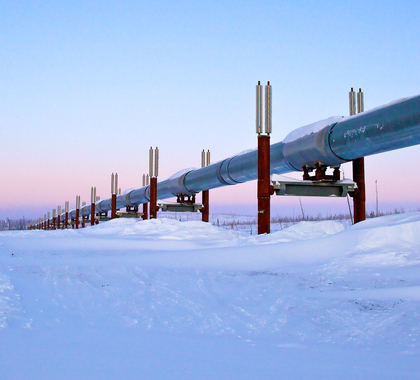Editor’s Note: Alaska state Sen. John Coghill (R-Fairbanks) has served in the state Senate since 2009 and as majority leader since 2013. Coghill serves on several committees, including as Chairman of the Senate Judiciary Committee, Vice-Chair of the Senate Resources Committee, and member of the Committees on State Affairs, Senate Education Committee, Joint Armed Services Committee, and Select Committee on Legislative Ethics.
Burnett: Alaska is asking the Federal Energy Regulatory Commission to approve the Alaska LNG (liquefied natural gas) Project, including a natural-gas processing plant in Prudhoe Bay, an 800 mile underground pipeline, and a natural gas export terminal in the Kenai Peninsula. It is also asking President Donald Trump’s administration for a $40 billion loan guarantee for the project, as part of Trump’s infrastructure initiative. Do you think the Alaska LNG project is important?
Coghill: Yes, the project is important. However, there has to be sound economics moving forward. The public-private partnerships have to be understood. Right now, there are considerable questions. The model suggested by the [Gov. Bill] Walker administration has been very different than what previously existed. Significant concerns remain, particularly about costs to the state.
Burnett: In former President Obama’s final year in office, the National Park Service and the U.S. Fish and Wildlife Service seized control of wildlife management on nearly 100 million acres of federal land in Alaska that had been under the control of the state government since the 1980 federal Alaska National Interest Lands Conservation Act (ANILCA). Alaska officials objected to this action as illegal federal overreach, and President Trump signed a Congressional Review Act resolution overturning it. Should Alaska control wildlife on public lands?
Coghill: It’s important Alaska maintain control, because wildlife management was a promise at statehood. It was one of the reasons we became a state.
Read the Statehood Compact. Look at the agreement in the Alaska Native Claims Settlement Act with the carve-outs for the subsistence provisions. Review the ratification of wildlife management in ANILCA. The state primarily manages fish and wildlife resources, not the federal government.
When the federal agencies attempted to usurp those bargained-for promises, the state was correct to strongly oppose.
Burnett: Alaska joined 26 other states in suing to block the Environmental Protection Agency’s Waters of the United States (WOTUS) rule in federal court. The court has blocked WOTUS, and the president is moving to withdraw it. Do you agree with Alaska’s decision to sue?
Coghill: Absolutely, I support Alaska’s decision to fight the WOTUS rule. The Alaska Senate Majority has provided multiple comments on the over-expansive WOTUS rule over the years. Alaska’s Senate leadership, including myself, submitted comments in 2014 opposing the expansion of the Clean Water Act. Specifically, we were opposed to expanding federal control over local waters when significant connections to downstream water quality could not clearly be established. On August 2, 2017, I submitted additional comments to regulation.gov in support of the rules rescission.
H. Sterling Burnett, Ph.D. ([email protected]) is a research fellow at The Heartland Institute.
Official Connections:
State Sen. John Coghill (R-Fairbanks): http://akleg.gov/legislator.php?id=CGL; [email protected]





